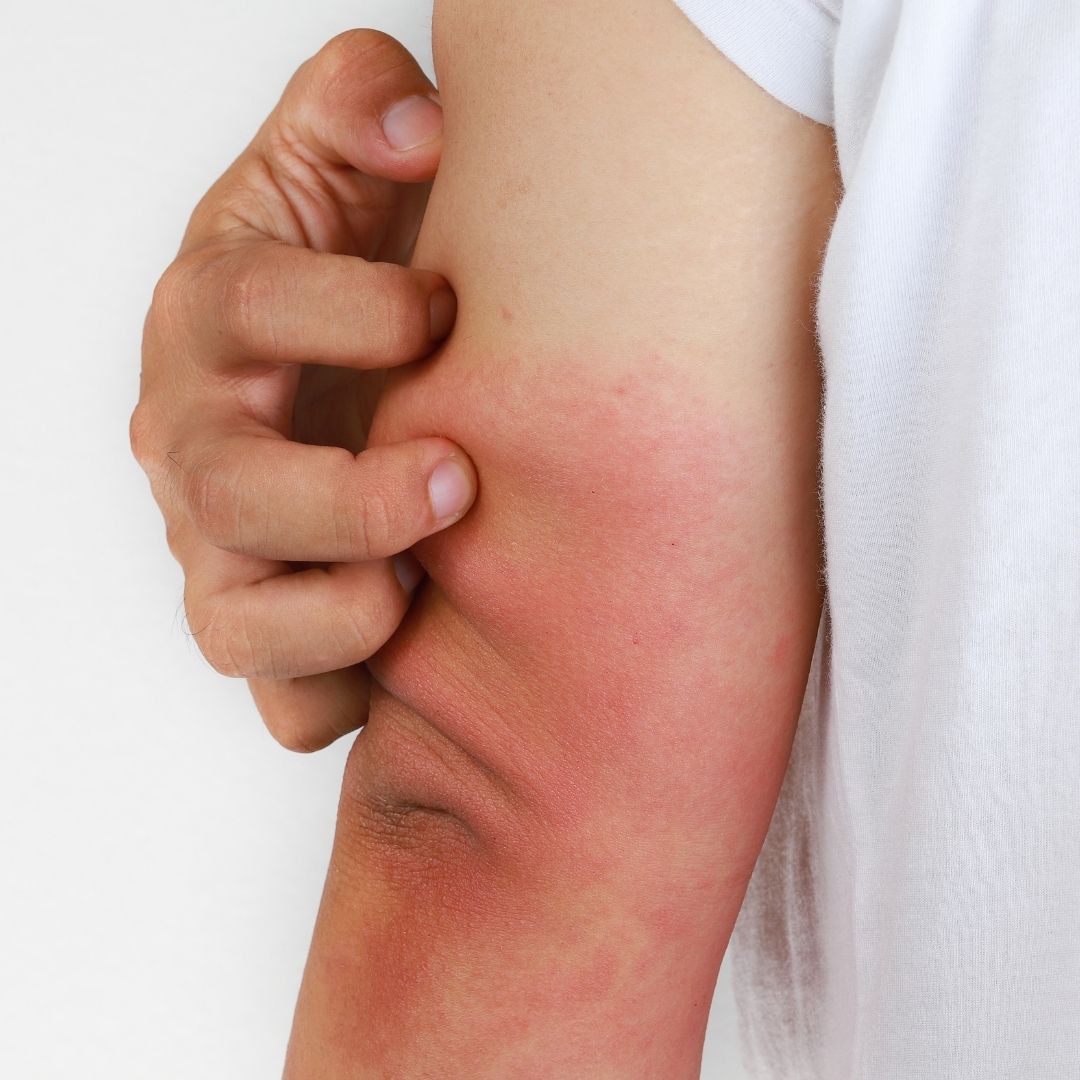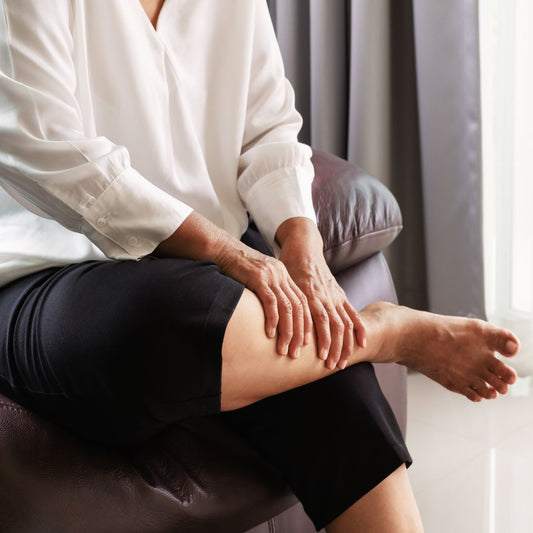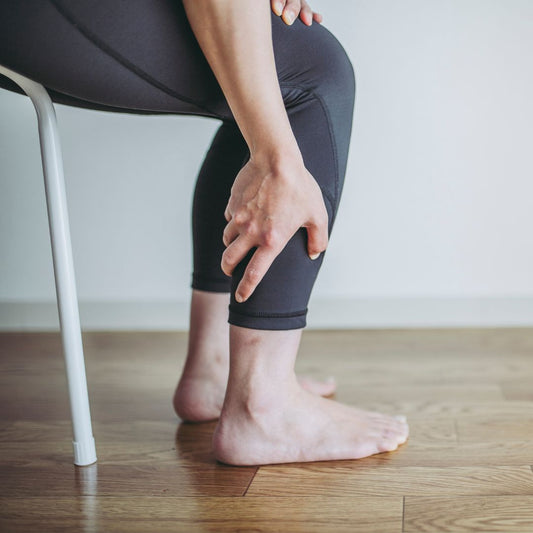By Dr. Peter Klapper Ph.D.
Picture this: your elbow begins to itch and following that itch is a red, inflamed rash. Naturally, you will start to wonder if the rash you’re experiencing is just a result of dry skin or something a bit more concerning such as eczema.
Understandably, you might find yourself scouring the internet to learn if eczema is contagious, if it is an allergic reaction causing the eczema, when it will go away, and how it can generally affect your lifestyle. You may also be curious about how stress can influence eczema flare-ups or how homeopathy offers natural treatment options.
October is Eczema Awareness Month, and we’re here to put your mind at ease by diving into “5 Facts You Need to Know About Eczema.” If you're looking for ways to manage eczema symptoms and improve your quality of life, our article on 6 Tips to Reduce Eczema Symptoms and Live Better offers practical advice.
1. Eczema Has Many TriggersToday, eczema affects up to 30 million Americans and is a lifelong condition that can first show up as itchy, red skin making it hard to pinpoint what is happening to your body. People who suffer from eczema tend to have an over-reactive immune system, and there are several triggers that can cause your skin to flare-up. Understanding these triggers is critical, especially in children; learn more in our piece on 5 Tips on Treating and Managing Eczema Rashes in Children. Additionally, eczema can be linked to other conditions like asthma; discover more in The Link Between Eczema and Asthma in Children.
Genetic
If you have a family member with eczema, you’re more likely to develop it at some point in your life.
Environmental Factors
Dry and low humidity weather patterns can cause your skin to dry out and become itchy, while hot and sticky climates can cause your skin to sweat more, exasperating your eczema.
Irritants
It’s not hard to aggravate already sensitive skin, and products like soaps, detergents, and wool can cause your skin to flare-up.
Allergens
Eczema also tends to be tied to people who have allergies such as asthma and hay fever, and ailments such as dust mites, pollen, molds, or foods might also be the cause of an uncomfortable rash.
Stress
Stress can have a huge impact on our immune system and if you’re experiencing a stressful time in your life, it’s common to see your skin flare-up, too.
2. Eczema Is Common In Children
Eczema can appear at any stage of life, but it’s likely to develop in a child’s first year and show up on a baby’s face, cheeks, chin, elbows, knees forehead and scalp. It’s important to know that eczema looks and acts different on infants and toddlers than it does in older children and can be confused with skin conditions such as baby acne.
Triggers for eczema can still be similar to those that we stated above, but for little ones, it can also be provoked by drooling from teething that causes irritation on their cheeks, chin and neck and from rubbing their knees and elbows as they begin to crawl. The good news, the diaper area tends to remain safe due to the moisture that protects the skin.

And while there is currently no cure for eczema, you can manage flares for your children by avoiding triggers when you can, implementing a daily bath and moisturizing routine and using products like our Eczema Control Remedy on children 3 years and older.
Also, keep in mind that children are likely to see a substantial improvement by the time they hit their teens.
3. Eczema Is Not Contagious
We get it, you see a red and brownish patch of inflamed skin and immediately assume that it must be from your friend who also had a skin irritation. Fortunately, eczema is not contagious.
However, because your skin can become irritated from the cracks in the skin, and potential leak of fluid from over scratching, you can become vulnerable to other infections that are contagious such as warts, cold sores, and athlete’s foot. (Don’t worry, we have a few tips that can help you avoid and treat those issues.)
4. There Are Different Types of Eczema
Eczema is actually a term that encompasses numerous types of conditions that cause your skin to become inflamed and irritated. Seven, to be exact. This reason alone is why it’s important to have a doctor identify what you’re dealing with and how you can prevent a flare-up. The seven different types include:
Atopic dermatitis
Atopic dermatitis is the most common form of eczema. This is the type that we’re likely to see in childhood and exists with two allergic conditions - asthma and hay fever. It flares up when your immune system becomes overactive and your skin’s natural barrier against elements is weakened causing it to become dry and prone to itching. Typically, people with atopic dermatitis experiences uncomfortable and painful rashes that can ooze fluids and bleed when scratched. Excessive scratching can lead to thickening and hardening of the skin.
Contact dermatitis
Just like in its name, contact dermatitis occurs when the skin comes into contact with an irritant that causes an allergic reaction. Irritants such as latex, metal or chemicals tend to be the culprit.
Neurodermatitis
Similar to atopic dermatitis, Neurodermatitis causes scaly patches that can bleed and become infected. Stress tends to be its trigger and is most common on the feet, ankles, hands, wrists, elbows, shoulders, neck, and scalp.
Dyshidrotic eczema
If you notice that the cause of your itchiness is coming from small blisters on your hands, soles, of feet and fingers and toes, you might have dyshidrotic eczema.
Nummular eczema
Nummular, meaning “coin” in Latin, eczema causes round, coin-shaped spots on your skin. It typically is the result of an insect bite or reaction to irritants such as metals and chemicals.
Seborrheic dermatitis
Ever heard of “cradle cap” on infants? This is typically known as seborrheic dermatitis. It tends to appear on areas of the body where you produce more oil such as the upper back, nose and scalp causing scales, redness and swelling.
Stasis dermatitis
Stasis dermatitis is caused by people who experience blood flow problems in their lower legs and feet. This can cause swelling that results in fluid leaking from weakened veins in your skin causing redness, scaling, itching and pain.In severe cases, statis dermatitis can cause permanent skin changes.
5. Eczema Can Be Treated
While eczema currently doesn’t have a cure, it can be treated. It’s important to know your triggers so that you can be proactive at keeping flare-ups at bay and to be consistent with a bathing and moisturizer routine.
However, if you do have a flare-up, our Eczema Control Remedy can help provide you relief by working on a cellular level to balance your skin’s overactive immune response and help reverse eczema symptoms naturally, without side effects. This natural eczema relief oil combines proven effective certified organic homeopathic medicines with healing and soothing certified organic essential oils to deliver the highest quality results.
Our natural eczema remedy delivers immune-enhancing properties to ease symptoms and balance the system. The soothing essential oils have anti-inflammatory properties which work on a local level to heal damaged skin.
The best part, no prescription needed!




